Someone asked me last week if using neuroscience for leadership was manipulation.
I get asked that a lot. I also thought about it a lot before I started sharing applications of neuroscience in leadership. Here’s where I ended up.
Manipulation is all about the intent of the leader. One leader’s manipulation is another leader’s influence. It all depends on the intent of the person using the technique.
Neuroscience for Leadership: Manipulation or Influence?
The powerful insights and techniques I share with leaders can absolutely be used to influence others. Which I suppose some might dub manipulation.
The reality is that anytime you give a powerful tool to a human, that human has the free will to choose.
Will I use that power for the good of others, or will I use it to promote my own gain.
Applying the power of neuroscience for leadership is no different. Manipulation or influence? That line is drawn by the intent of the leader. Just because a few less than integrity leaders might use this power for their own personal gain doesn’t mean the power of neuroscience in leadership is bad. It simply means the people using that power have less than good intentions.
That said, I believe that great leadership is defined as influencing people to step up to their ultimate potential.
If someone wants to call that manipulation, so be it.
The Power of Influence in Leadership
I believe that learning to influence others with neuroscience for leadership helps us become better leaders. Here’s why.
1. You will influence people to step into their ultimate potential. Neuroscience gives us the insights to do just that. Much of what we’ve been taught about humans is being negated by recent scientific discoveries.
For example, we are not clones that can be placed into categories. Much less “managed” based on the lowest common denominator in those categories. We are individuals. Our unique brain programming drives every thought, decision and behavior.
Which is why I’m so passionate about sharing these amazing insights and techniques with other leaders. We now have the key knowledge to understand what makes individuals tick, to bring out the very best in each and every one of our teams. What great leader wouldn’t want to do that?
2. The insights of neuroscience enhance your powers of perception. When we learn what really makes people tick, our views of people change.
For example, I used to think mis-matchers and nit-pickers were just plain asses. Then I learned that those annoying behaviors were all part of their unique brain programming. Based on their unique life’s experiences. Somewhere along the line, their brains were programmed to be naysayers in order to survive their experiences.
That simple shift in perception changed the way I looked at people, forever. It opened my heart. I now accept even the most cantankerous naysayer as simply another human, driven by their very own wiring. Then, I work with them accordingly. To their highest and best potential. And yes, that may include influencing them to shift out of that naysayer programming into something a bit more productive.
3. We already influence others, all the time. We just don’t do it consciously. The reality is that we all influence others. It’s part and parcel of being human.
Whether it’s to get the date with that awesome guy or gal, get that upgraded suite on the beach, make that big sale or get out of that speeding ticket. We use our innate powers of influence.
Thanks to neuroscience for leadership, we have the opportunity to positively influence every person in our organization. To help them find their stride, their best role and behaviors to fuel their success.
The Bottom Line
The fact is that we all use influence. We hopefully don’t mis-use it the way public figures, politicians, scamming internet gooroos and just plain sociopaths in our society use it. That’s called manipulation for personal gain.
I think it’s time modern leaders leveraged the limitless potential of influence through our human minds. Neuroscience in leadership teaches us valuable insights and techniques, including:
- How to step into influence with every unique individual.
- How we can use influence to lead our people into their best possible performance.
- How we can influence everyone we meet to break out of their limiting beliefs. To believe in themselves and their ability to succeed. To make a valuable contribution.
Maybe it’s manipulation. I think it’s the definition of great leadership.
What do you think?






